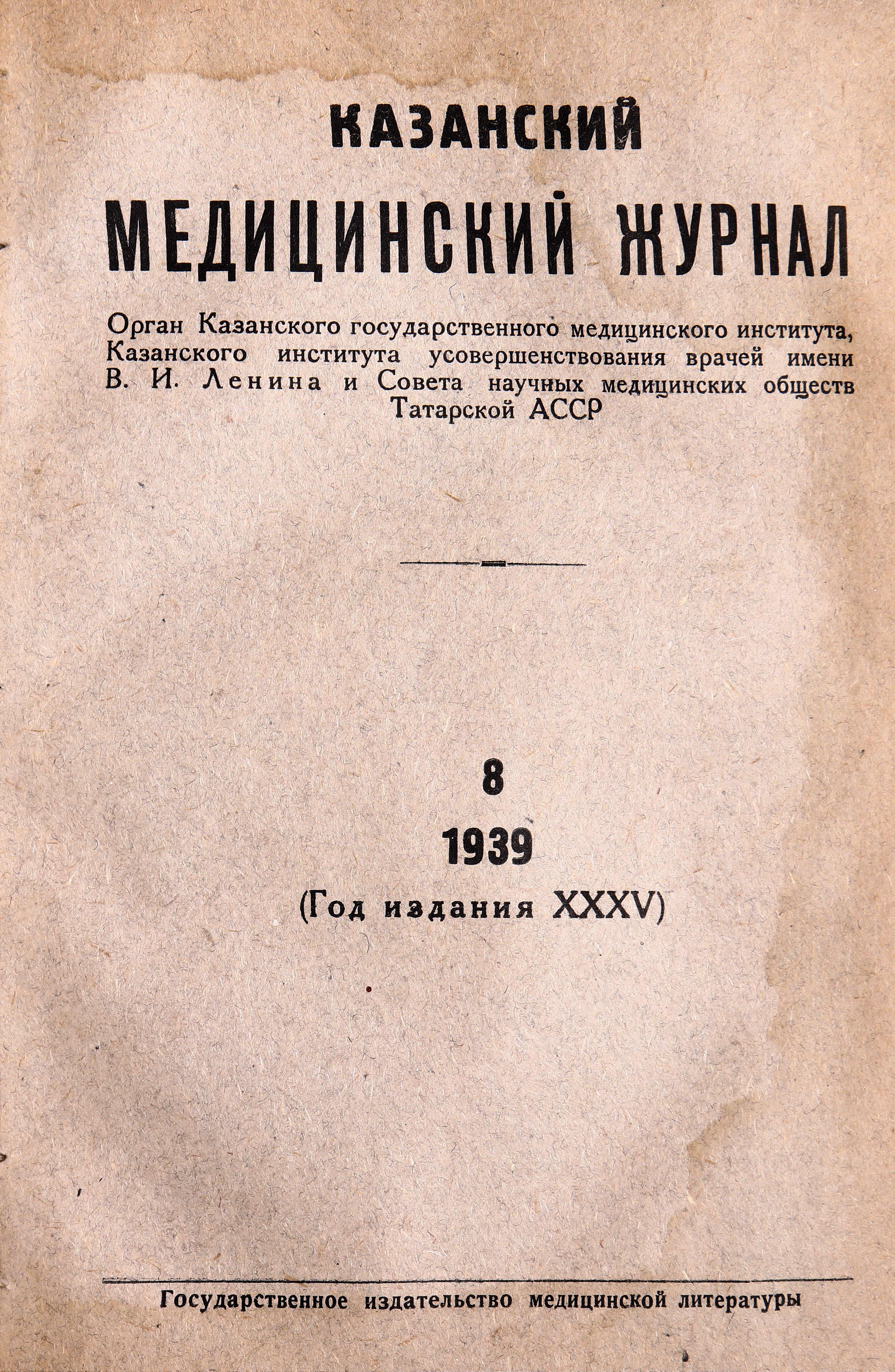Complement titer in rheumatic diseases
- Authors: Ekelov M.1, Rabenko R.E.1
-
Affiliations:
- Kharkov Institute for Advanced Medical Education
- Issue: Vol 35, No 8 (1939)
- Pages: 42-44
- Section: Articles
- Submitted: 29.05.2024
- Accepted: 29.05.2024
- Published: 15.08.1939
- URL: https://kazanmedjournal.ru/kazanmedj/article/view/632983
- DOI: https://doi.org/10.17816/KMJ632983
- ID: 632983
Cite item
Abstract
Some authors consider rheumatism to be an infectious disease with a specific, as yet unexplained nature of the causative agent (Schottmüller's infectious theory, the oral sepsis of American authors). Others, however, believe that it is an allergic disease, as pointed out by Weintraud long ago. In recent years the allergic theory of rheumatism has been solidly established by the work of Klinge and his school and by Alpern. The notion of a known quantitative change in immunizing processes in the sense of an insufficient height of the antibody titer in the juices and cells of the body is associated with the concept of "allergic state of the organism" (Zeman).
Keywords
Full Text
About the authors
M. Ekelov
Kharkov Institute for Advanced Medical Education
Author for correspondence.
Email: info@eco-vector.com
Ukraine, Kharkov
R. E. Rabenko
Kharkov Institute for Advanced Medical Education
Email: info@eco-vector.com
Ukraine, Kharkov
References
Supplementary files






